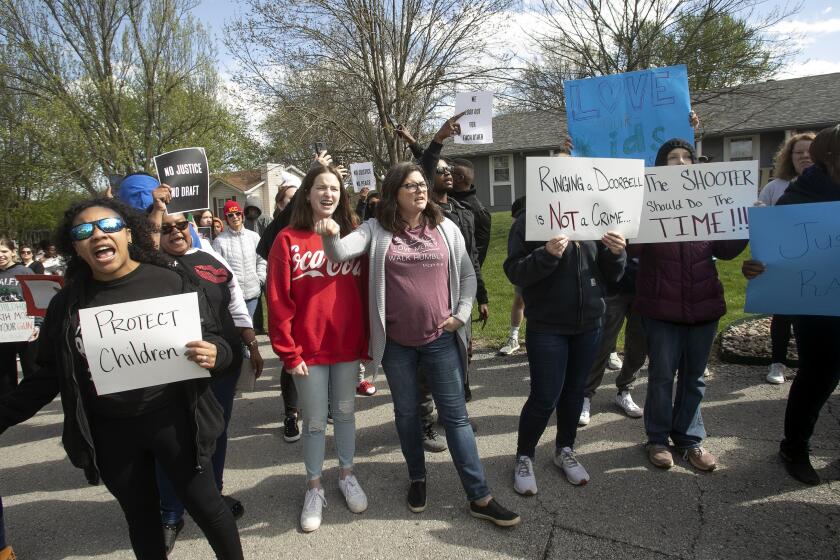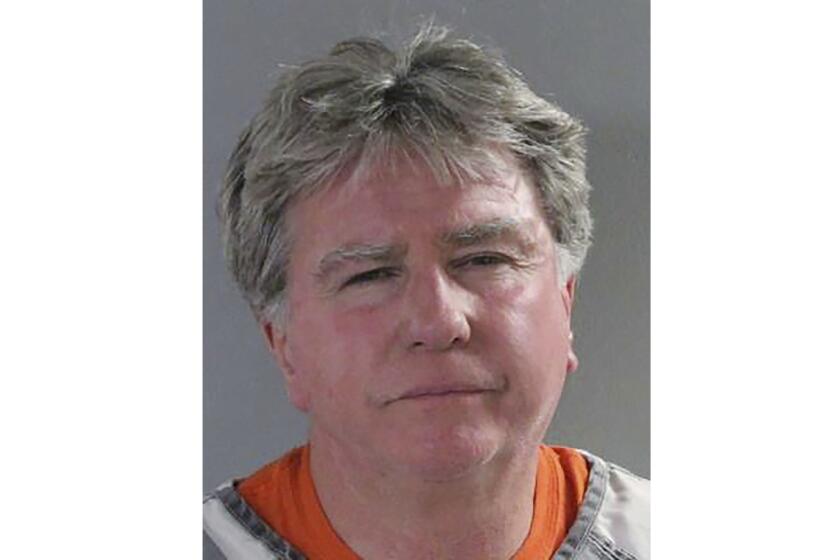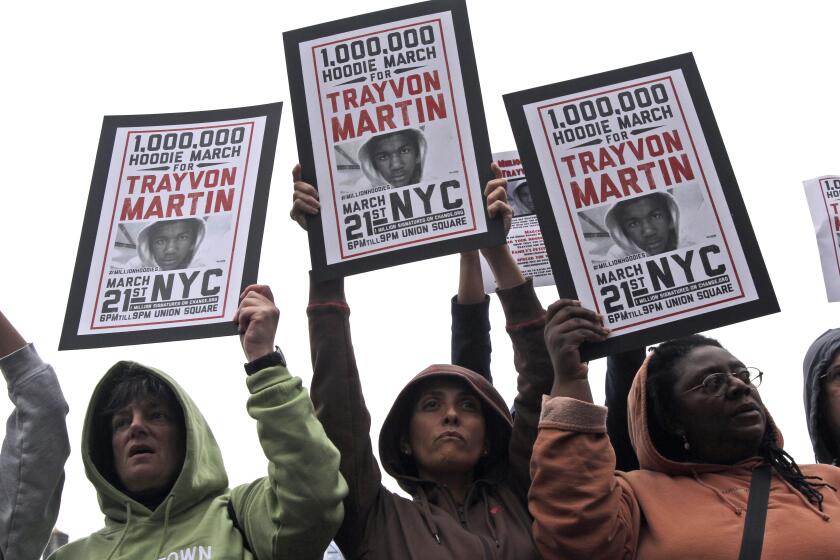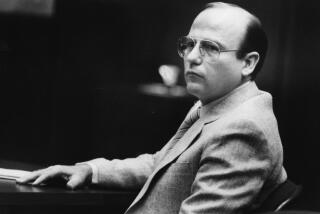Ralph Yarl’s mom: ‘Buckets of tears,’ but he’s coping well
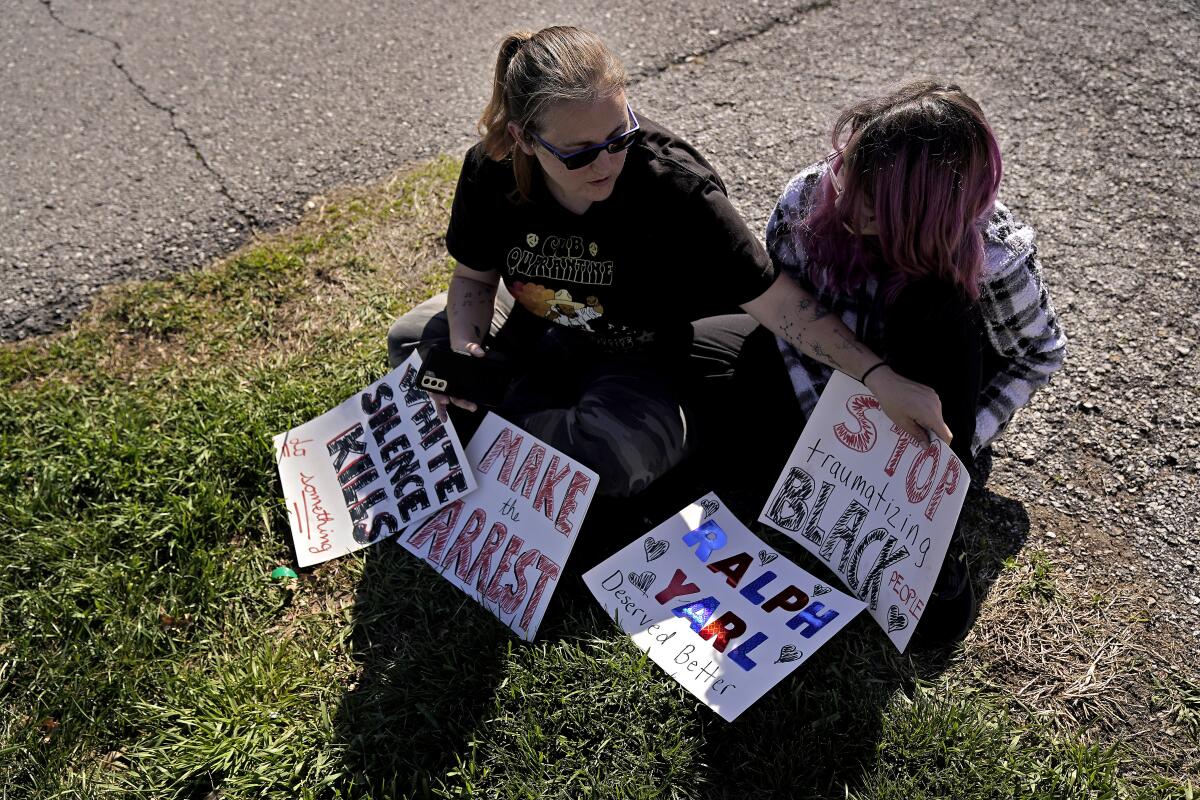
KANSAS CITY, Mo. — As 16-year-old Ralph Yarl struggled to come to grips with being shot for going to the wrong house to pick up his younger brothers, the white Kansas City, Mo., homeowner who shot the Black teenager turned himself in Tuesday.
Andrew Lester, 84, surrendered at the Clay County Detention Center a day after being charged with first-degree assault and armed criminal action. Some civil rights leaders urged a hate crime charge, but Clay County Prosecuting Atty. Zachary Thompson said first-degree assault is a higher-level crime with a longer sentence — up to life in prison.
Meanwhile, Ralph was home recovering from his wounds.
“Ralph is doing considerably well,” his mother, Cleo Nagbe, told “CBS Mornings” co-host Gayle King. “Physically, mornings are hard, but his spirits are in a good place. I borrow from his spirits. He is in very good hands.”
Nagbe said the trauma remains evident. She said her son is “able to communicate mostly when he feels like it, but mostly he just sits there and stares and the buckets of tears just roll down his eyes.”
“You can see that he is just replaying the situation over and over again, and that just doesn’t stop my tears either,” she said.
The shooting happened about 10 p.m. Thursday. Police Chief Stacey Graves said Ralph’s parents asked him to pick up his twin brothers at a home on 115th Terrace.
Ralph Yarl went to the wrong Kansas City, Mo., home to pick up his brothers and was shot in the head. An 84-year-old white man has been charged with assault.
Ralph, an honor student and all-state band member, mistakenly went to 115th Street. When he rang the bell, Lester came to the door and shot him in the forehead, then shot him again, in the right forearm.
Lester faces arraignment Wednesday afternoon. He does not yet have a listed attorney.
Lester told police he lives alone and was “scared to death” when he saw a Black male on the porch and thought someone was trying to break in, according to the probable cause statement.
No words were exchanged before the shooting, but afterward, as Ralph got up to run, he heard Lester yell, “Don’t come around here,” the statement said.
Ralph ran to multiple homes asking for help before finding someone who would call the police, the statement said.
James Lynch was the neighbor who found Ralph. Lynch didn’t immediately respond to an interview request, but his wife, Tiffany, in a brief interview confirmed an NBC News report that said Lynch heard shouting and saw Ralph banging on the door of another home.
“I heard somebody screaming, ‘Help, help, I’ve been shot!’” James Lynch told NBC. The father of three ran out and found Ralph covered in blood. Lynch checked his pulse and, when another neighbor came out with towels, helped stem the bleeding until paramedics arrived.
“He just wants the family to know that Ralph wasn’t alone,” Tiffany Lynch said, adding that the action was typical of her husband.
“He helps out anyone he can and always has,” she said.
The shooting prompted outrage in Kansas City and across the country. Civic and political leaders — including President Biden — demanded justice. Biden also invited Ralph to the White House.
“No parent should have to worry that their kid will be shot after ringing the wrong doorbell,” Biden said on Twitter. “We’ve got to keep up the fight against gun violence. And Ralph, we’ll see you in the Oval once you feel better.”
Thompson said Monday that there was a “racial component” to the shooting. But Assistant Prosecuting Atty. Alexander Higginbotham clarified in an email to the Associated Press on Tuesday that “there is not a racial element to the legal charges that were filed.”
A 20-year-old woman on her way to a friend’s house in upstate New York was driven to the wrong address and was quickly shot to death by the homeowner.
Still, some — including lawyers for Ralph’s family — pressed the racial dimension of the case. A protest rally was planned for Tuesday afternoon, and NAACP leaders planned a news conference at the rally site.
“The police are not treating this case in the same way Black people accused of murder are treated,” Missouri NAACP President Nimrod Chapel Jr. said in a statement. “A Black suspect would have been in jail.”
Higginbotham said the prosecutor’s office policy is to wait for a criminal referral from police. “KCPD submitted their referral to us on Monday afternoon and charges were filed within approximately an hour of the case being referred to us by law enforcement,” he said in an email.
The assault charge carries a penalty of up to life in prison. Lester also was charged with armed criminal action, which has a penalty range of three to 15 years in prison.
It wasn’t immediately clear whether the U.S. Department of Justice was investigating. Messages left with a spokesman were not immediately returned.
Charging Lester with a hate crime would have potentially meant a shorter sentence if he’s convicted, experts said.
Washington University School of Law professor Peter Joy said the state hate crime law is used only to enhance low-level felony or misdemeanor charges, taking them no higher than a Class C felony level, with a penalty range of three to 10 years.
“What the prosecutor did was charge [Lester] with the highest degree of felony they could charge him with,” Joy said.
Legal experts believe Lester’s lawyers will claim self-defense under Missouri’s “Stand Your Ground” law. The law allows for use of deadly force if a person is in fear for his or her life. Missouri is among roughly 30 states with such statutes.
Robert Spitzer, a professor emeritus of political science at the State University of New York Cortland, whose research focuses on gun policy and politics, said the Missouri law provides “wide latitude for people to use lethal force.”
St. Louis defense attorney Nina McDonnell agreed. She said prosecutors have a strong case, but the Stand Your Ground law defense is a “huge hurdle” to overcome.
“The defendant was in his house and has expressed that he was in fear,” McDonnell said.
The Rev. Vernon Howard, president of the Southern Christian Leadership Conference of Greater Kansas City, called the shooting a “heinous and hate-filled crime.” Vice President Kamala Harris wrote on Twitter, “No child should ever live in fear of being shot for ringing the wrong doorbell.” The Missouri Senate held a moment of silence for Ralph on Monday.
The civil rights attorneys for Ralph’s family, Benjamin Crump and Lee Merritt, said in a statement that Biden called the teen’s family and offered “prayers for Ralph’s health and for justice.”
McDonnell said Missouri’s hate crime statute is used to enhance only low-level felony or misdemeanor charges. Because first-degree assault is a Class A felony — the highest level, with a penalty of up to life in prison — filing a hate crime charge would have no effect on Lester’s penalty if convicted.
Ten years ago when Trayvon Martin was fatally shot, Florida was one of the few states with “stand your ground” laws that eased use of deadly force.
By Tuesday morning, a GoFundMe page set up for Ralph’s medical bills had raised $2.9 million from 77,000 donations.
Ralph is a bass clarinetist who earned Missouri All-State Band honorable mention and who plays several instruments in the Metropolitan Youth Orchestra of Kansas City, Ralph’s aunt, Faith Spoonmore, wrote. A statement from the North Kansas City School District described him as “an excellent student and talented musician.”
More to Read
Sign up for Essential California
The most important California stories and recommendations in your inbox every morning.
You may occasionally receive promotional content from the Los Angeles Times.
